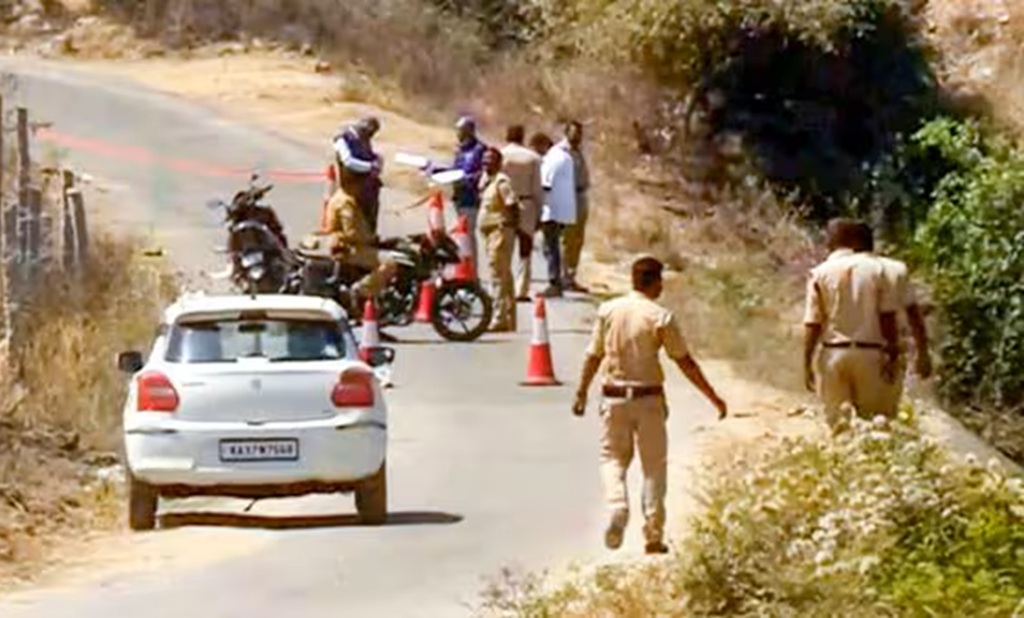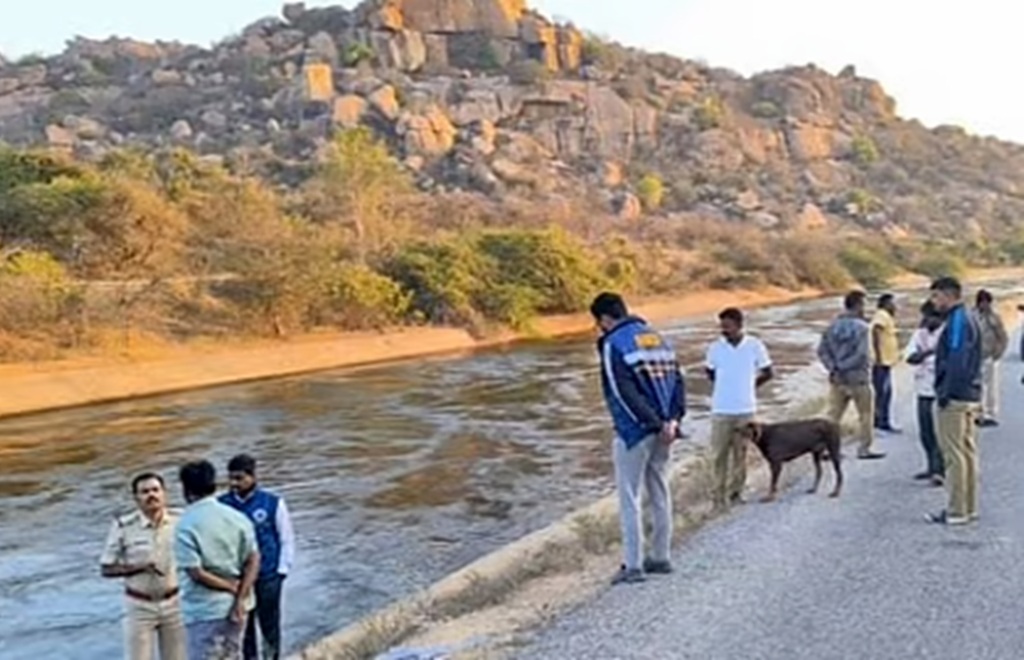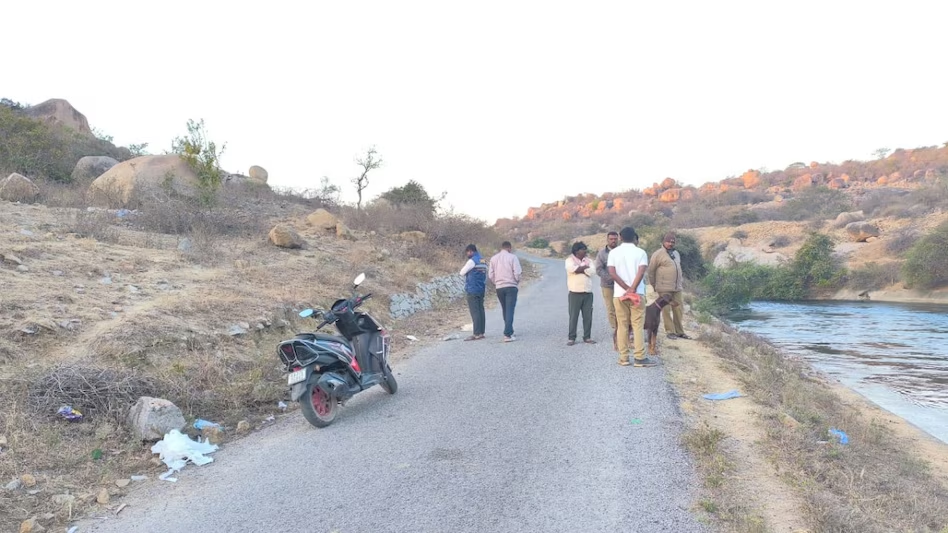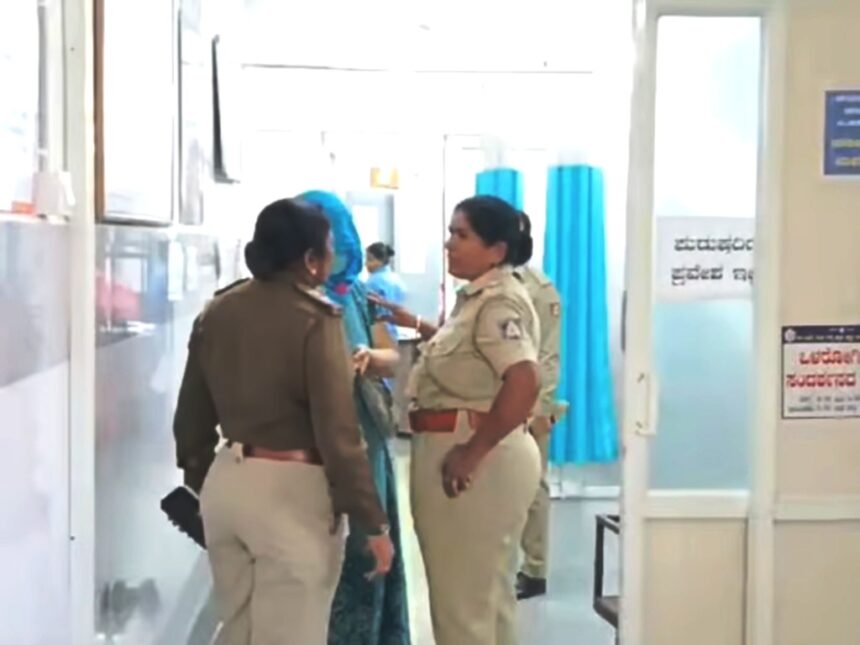Police reported that a 27-year-old Israeli woman and a 29-year-old Indian woman were gang-raped near a well-known Unesco World Heritage site in Karnataka, India. Three men who accompanied the women, including one American, were also assaulted and thrown into a canal.
The body of one of the men was recovered from the water the following morning.
According to police, the attack took place between 11:00 and 11:30 pm on Thursday near Sanapur Lake, located about 4 kilometres from Hampi, a popular tourist destination in Karnataka that attracts many international visitors.
The group, which included an Israeli woman, three men from Odisha, the United States, and Maharashtra, and their female Airbnb homestay owner, went stargazing after dinner. They were sitting by the Tungabhadra Canal near the lake, listening to music and playing guitar while enjoying the night sky.

At some point, three men on motorbikes approached the group, asking for directions to a petrol station. When the homestay owner informed them there were no stations nearby, the men demanded money.
When the group refused to comply, the attackers—who spoke Kannada and Telugu—became aggressive and assaulted them.
According to the Guardian, the Airbnb homestay owner, who later filed the complaint, reported that the attackers pushed the male tourists into the canal. While the men were struggling to get out of the water, two of the attackers sexually assaulted her and the Israeli woman.
Police stated that the suspects dragged the homestay owner to the edge of the canal, attempted to strangle her, and removed her clothing before physically attacking and raping her. The attackers also stole her bag, which contained two mobile phones and Rs 9,500 in cash.

Similarly, the third attacker isolated the Israeli woman and raped her before fleeing the scene with his accomplices on their motorbikes.
Two of the male tourists, one from Maharashtra and the other from the United States, managed to escape the canal and are now receiving medical care at a government hospital. However, the man from Odisha could not get out, and his body was discovered the next morning.
Ram L Arasiddi, a local police officer, revealed that a special investigation team was formed to handle the case. By Saturday, police had arrested two suspects, who are now being investigated for gang-rape, attempted murder, and robbery.
The issue of sexual violence remains a significant concern in India. According to the National Crime Records Bureau, 31,516 rape cases were reported in 2022, marking a 20% increase from the previous year. However, the real numbers are believed to be much higher due to the stigma associated with reporting such crimes and victims’ mistrust of law enforcement.

Sexual violence gained global attention after the 2012 gang-rape and murder of a 23-year-old student on a Delhi bus, which sparked widespread protests. This led to the establishment of fast-track courts for rape cases and harsher penalties for offenders.
In 2013, laws were revised to include stalking and voyeurism as criminal offences, and the minimum age for trying offenders as adults was reduced from 18 to 16. In 2018, the government introduced the death penalty for those convicted of raping children under 12 years old.
High-profile cases involving foreign tourists have also drawn international scrutiny. Last year, a Spanish tourist reported her wife was assaulted in northern India, while an Indian-American woman alleged she was raped at a Delhi hotel. In 2022, a British tourist was assaulted in Goa while her partner was present.
Rape Culture in India
India faces deeply ingrained issues that normalize sexual violence and Rape Culture. Victim-blaming attitudes, patriarchal norms, and inconsistent law enforcement make it challenging for survivors to come forward. Many women fear judgement, stigma, or retaliation for reporting such crimes.
Unsafe environments are common in public spaces, workplaces, and even homes. Media and Bollywood often portray toxic masculinity, reinforcing harmful attitudes toward women.
While awareness and protests have increased in recent years, progress in addressing these issues remains slow. Change requires better education, stricter enforcement of laws, and a cultural shift to value and respect women’s rights and autonomy.
Related News:
Authorities in India Fear Telugu Sex Stories are Fueling Rape Culture

Geoff Thomas is an award winning journalist known for his sharp insights and no-nonsense reporting style. Over the years he has worked for Reuters and the Canadian Press covering everything from political scandals to human interest stories. He brings a clear and direct approach to his work.














